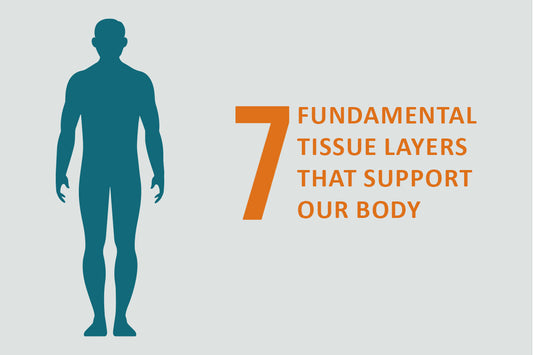In recent years, there has been a lot of talk about free radicals and how they affect our health. But what exactly are free radicals, and why are they considered harmful? Understanding these tiny particles can help us appreciate the importance of a healthy lifestyle and the role of antioxidants in maintaining our well-being.
What Are Free Radicals?
Free radicals are unstable molecules that are produced naturally in the body as a byproduct of normal metabolic processes, such as breathing and digestion. They can also come from external sources, including pollution, cigarette smoke, radiation, and certain chemicals.
Molecules typically have pairs of electrons that create stability. Free radicals, however, have unpaired electrons, making them highly reactive. To achieve stability, they seek out and steal electrons from other molecules, which can set off a chain reaction of damage in the body.
How Free Radicals Are Formed
Free radicals are formed through various processes:
- Normal Metabolic Processes: When the body converts food into energy, it produces free radicals as a byproduct. This is a natural part of metabolism.
- Environmental Factors: Exposure to pollution, tobacco smoke, and radiation can increase the number of free radicals in the body.
- Inflammation: The body's immune response also produces free radicals.
- Exercise: Intense physical activity can lead to an increase in free radical production, although moderate exercise can help the body enhance its antioxidant defenses.
Why Are Free Radicals Harmful?
Free radicals can cause impact cells, proteins, and DNA by stealing their electrons. This process, known as oxidative stress, can lead to:
- Cell Damage: Free radicals can damage the structure of cells, affecting their function and potentially leading to cell death.
- Protein Damage: Proteins are essential for many bodily functions, including the structure and function of tissues and organs. Free radicals can alter proteins, impairing their function.
- DNA Damage: Free radicals can cause mutations in DNA, which may lead to cancer and other genetic disorders.
- Aging: Oxidative stress is believed to play a significant role in the aging process, contributing to wrinkles, age spots, and other signs of aging.
- Unhealthy Conditions: Prolonged oxidative stress is linked to heart disease, diabetes, and neurodegenerative disorders.
The Role of Antioxidants
Antioxidants are molecules that can neutralize free radicals by donating an electron, thereby preventing them from cell damage and other impacts. The body produces some antioxidants naturally, while others are obtained from the diet.
Types of Antioxidants
- Endogenous Antioxidants: These are produced by the body and include enzymes like superoxide dismutase, catalase, and glutathione peroxidase.
- Exogenous Antioxidants: These come from external sources, primarily the diet. They include vitamins (such as vitamins C and E), minerals (such as selenium and zinc), and phytochemicals (such as flavonoids and carotenoids).
Sources of Dietary Antioxidants
A diet rich in fruits, vegetables, nuts, and seeds or some of the dietary supplements can provide a wide range of antioxidants. Some notable sources include:
Found in citrus fruits, berries, bell peppers, broccoli and vitamin C supplements.
Vitamin E: Found in nuts, seeds, and green leafy vegetables.
Beta-Carotene: Found in carrots, sweet potatoes, and spinach.
Flavonoids: Found in apples, onions, dark chocolate, and tea. Also, Quercetin supplements are rich in antioxidants.
Selenium: Found in Brazil nuts, seafood, and eggs.
Balancing Free Radicals and Antioxidants
Maintaining a balance between free radicals and antioxidants is crucial for optimal health. Here are some tips to help achieve this balance:
- Eat a Balanced Diet: Consume a variety of antioxidant-rich foods to provide your body with the necessary defenses against free radicals.
- Avoid Smoking and Limit Alcohol: Tobacco smoke and excessive alcohol consumption can increase free radical production.
- Limit Exposure to Environmental Toxins: Reduce exposure to pollutants and chemicals by using natural cleaning products and avoiding heavily polluted areas when possible.
- Exercise Moderately: Engage in regular physical activity to enhance the body’s antioxidants , but avoid overtraining, which can increase oxidative stress.
- Manage Stress: Chronic stress can contribute to oxidative stress. Practice relaxation techniques such as meditation, deep breathing, and yoga.
- Get Enough Sleep: Quality sleep is essential for the body to repair and restore itself, including managing oxidative stress.
Conclusion
Free radicals are unstable molecules that can cause significant impact on the body through oxidative stress. Understanding the impact of free radicals on our health underscores the importance of maintaining a healthy lifestyle, rich in antioxidant-containing foods. By eating a balanced diet, avoiding harmful environmental factors, and practicing healthy habits, we can help enhance our body's ability to manage free radicals and support overall health.
Take control of your health by being mindful of your lifestyle choices, and remember that small changes can make a big difference in maintaining a balance between free radicals and antioxidants.






